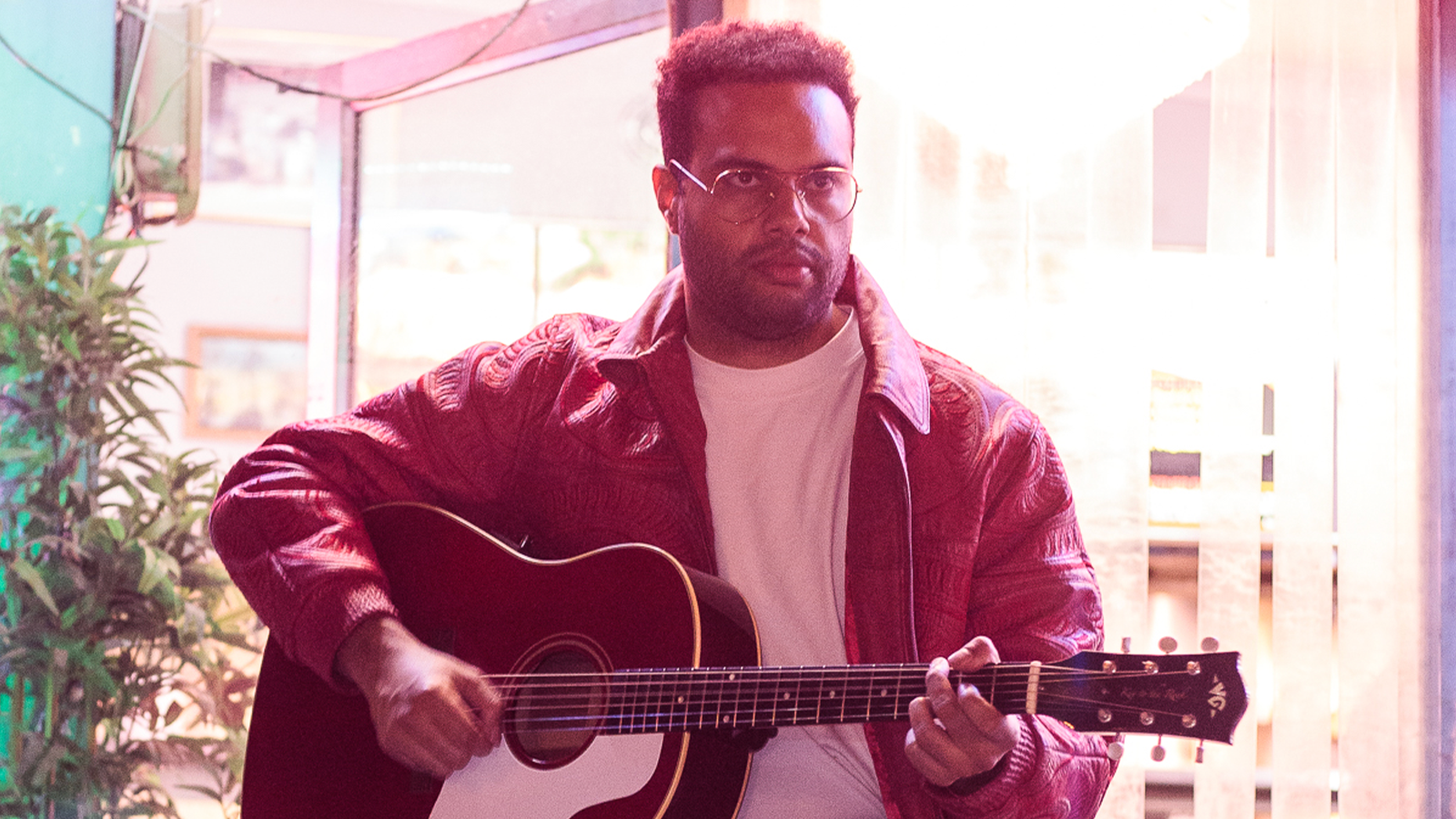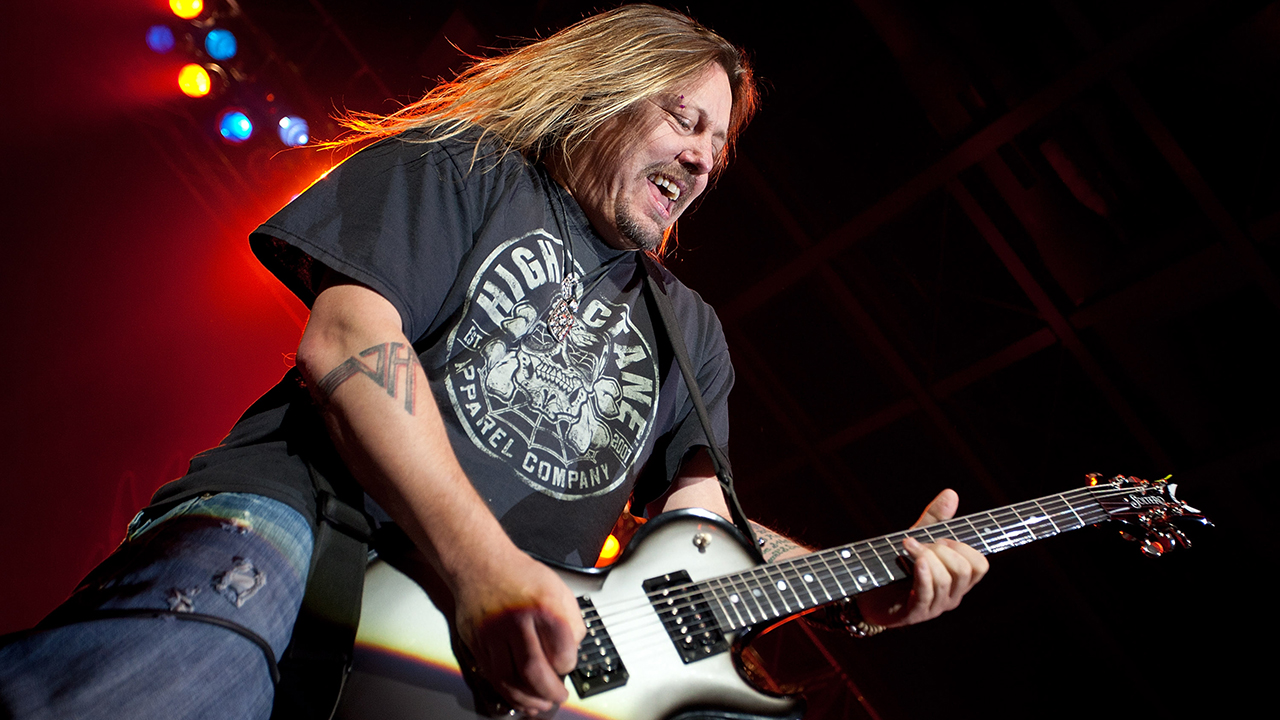Joji Malani, aka Pei: “As a solo artist, I’m able to be way more intentional about everything”
On his debut album as Pei, ex-Gang Of Youths strummer Joji Malani welcomes us to a world of technicolour indie-pop. Australian Guitar takes a first-class tour

All the latest guitar news, interviews, lessons, reviews, deals and more, direct to your inbox!
You are now subscribed
Your newsletter sign-up was successful
For much of the last decade, Joji Malani was best known for doling Gang Of Youths their musical bedrock, armed with an ear for theatricality, a fierce will to break the boundaries of genre, and a love for rock ’n’ roll at his core. But in 2019 – just when Gang Of Youths became mainstream darlings on the back of their insta-classic second album, 2017’s Go Farther In Lightness – Malani bid adieu to his chosen family, eager to explore a new direction as a solo artist.
Under the moniker Pei (a Fijian word for “baby”), Malani’s new material glimmers with a hint of the charm heard in his work with Gangs – ‘Growth’ and ‘Trying’, for example, are both progressive indie-pop songs made epic with operating strings and soaring harmonies – but it shows a breadth he couldn’t truly embrace with four other voices to contend with. In allowing his mind to run wild, unrestrained by the opinions of bandmates or the shackles of major label A&R (instead forming his own Broth Records imprint), Malani was able to mine from levels of creativity that not even he knew existed.
Three years into his solo journey, Malani has opened the gates to his wonderland, welcoming us with open arms on the debut album Pei’s Pageant. And as he tells Australian Guitar, this is just the entry point – there’s a whole world of creativity to explore in the mind of Pei, and just as we’re excited to see to fruits of it, so too is he excited to unearth them.
So the songs on this album go from folky to theatrical, with plenty of indie-pop in-between. Was the intent here to really take the listener on a journey?
I don’t think so. I came from a setting, in my previous place of employment, where concept albums were a really big thing – the themes and the lyrics and the music and production, everything was intertwined. But with this album, I wanted to rid myself of that. I’m cheating a little bit, because obviously I’ve had a career in another band, but I was trying to approach this album like someone who’s never made music before. I know that can sound quite contrived, but I guess I just felt like I’d skipped a lot of steps, you know? I didn’t get to enjoy that process myself.
I just wanted to try things. There’s like a lot of conventional wisdom you pick up along the way – or just stuff you get told, or stuff you can Google – on how to write and record a song. So I just wanted to try everything, even if I knew, “This probably isn’t going to work.” You know, things like using certain mics, where people would be like, “Oh, you should use this mic, this is the standard mic you use to record a drum.” I’d just be like, “Well, I don’t know that for a fact.”
Most of the time I was wrong, but sometimes we came up with some really cool things. But yeah, I don’t want to try to sound like I was super intentional about how the album came about – I was just shooting the shit, really.
What were some of the biggest things you learned in that process?
I guess I’d always had an idea of the sounds I was into, or how to layer things properly. In the past, I would just stack so many instruments and so many tracks into a recording. I did that at the start of [the recording process for] this album and Tim would just laugh – he’d be like, “Man, I have never recorded so many tracks in my life!” But I came out of [the process] realising that was a “safety net” thing for me.
All the latest guitar news, interviews, lessons, reviews, deals and more, direct to your inbox!
‘Count To 10’ was the last song I wrote for the album, and that song has way less layers than all the other ones. I think ‘Count To 10’ is kind of where I realised a lot of things about how I write now – realising that I don’t need to stack things to make them sound good. It isn’t good to worry about that kind of stuff in the mixing stage, either, because it’s kind of overwhelming when you get to that… Yeah, I guess that’s the main thing – not “less is more”, but you know, more is not always better.
Had you been thinking about going solo for much time before you left Gang Of Youths?
Yeah, actually – it was definitely on my mind. I always thought I could maybe try to do it while I was still in Gangs, but you know, things happened in my life that caused me to resist taking that leap. And Gangs was quite time-consuming and fulfilling; I felt like I was giving a lot of myself in a way that didn’t leave me with much room to do anything else. But for the last few years that I was in Gangs, I just kind of felt that for myself – and what I wanted to achieve, in terms of the big picture – it was going to be hard to do both.
Also, it would have felt cheap for me to do this project on the side... You know, when you’re a part of something so great and so big – like Gangs – whatever you do on the side will always be perceived through that lens. Obviously with the first single release, ‘Honest’, there was that residual stuff from it being, you know, the first thing I do post-Gangs – but since then, it really does feel like people are digesting [the Pei material] as its own separate entity.
It’s gotta feel liberating, too, to really focus your energy into this and go “full steam ahead” as Pei.
Totally, yeah! And I’m able to be way more intentional about everything. I put this out on my own record label, and I’ve been doing everything myself – and you know, if I was still a part of my former act, I could rely on a lot of that clout to push and promote it. And people still think it works like that: I was talking to someone recently and they were like, “Man, you’re so lucky that you get to do what you’re doing off the back of Gangs.” And I was like, “Well, actually…”
A lot of it has to do with COVID. I know some amazing, very famous Australian artists in bands, who have put solo projects out and had them not do as well as they could have because of COVID. It just levelled the playing fields – which is sad, but also kind of nice for me, because it helped separate [Pei from Gang Of Youths].
What are your touring plans for Pei’s Pageant?
There are definitely lots of plans to play lots of shows, but I don’t want to just go down the same route and play all the same venues that I did in my last band; I’m trying to revisit things and do it differently. I think you kind of have to in the current climate, too – people aren’t going to shows like they were before. They really need a reason to leave the house, right? And so I want to be more engaging with how I present the show, whether that’s the venue or the occasion, or who I’m playing with... There’s a reason why I haven’t done anything yet, and why nothing’s been announced.

Ellie Robinson is an Australian writer, editor and dog enthusiast with a keen ear for pop-rock and a keen tongue for actual Pop Rocks. Her bylines include music rag staples like NME, BLUNT, Mixdown and, of course, Australian Guitar (where she also serves as Editor-at-Large), but also less expected fare like TV Soap and Snowboarding Australia. Her go-to guitar is a Fender Player Tele, which, controversially, she only picked up after she'd joined the team at Australian Guitar. Before then, Ellie was a keyboardist – thankfully, the AG crew helped her see the light…
